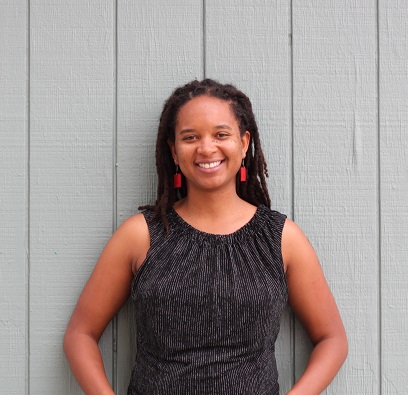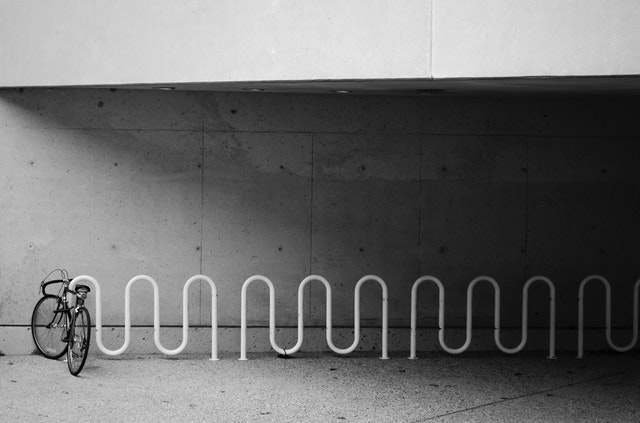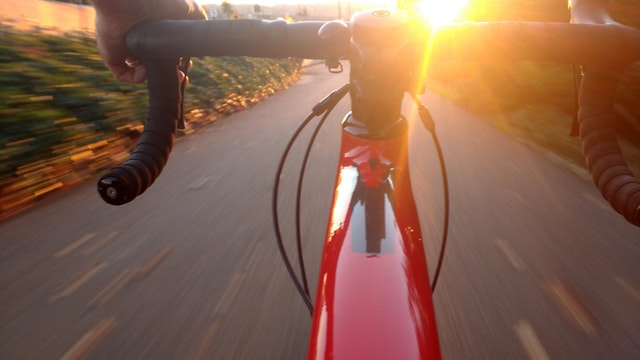Goodbye and thank you!
by Stefani Cox
August 15, 2019
This is a farewell post from writer/editor Stefani Cox. Thank you to all our partners and grantees who’ve made my job easy these past few years with your helpful interviews, resources shared, and enthusiasm for the work. I wish you all the best.
 It feels like quite awhile since I began writing for the Better Bike Share Partnership back in October of 2016, mainly because of all the ways that bike sharing and micromobility have changed since then. In fact, “micromobility” wasn’t even a term three years ago. It’s been an ever-unfolding journey to write about bike share equity throughout this time, and to view the field from a bird’s-eye view.
It feels like quite awhile since I began writing for the Better Bike Share Partnership back in October of 2016, mainly because of all the ways that bike sharing and micromobility have changed since then. In fact, “micromobility” wasn’t even a term three years ago. It’s been an ever-unfolding journey to write about bike share equity throughout this time, and to view the field from a bird’s-eye view.
I’ve had the chance to learn about innovative programming throughout the country, like connecting bike share to health initiatives, providing free ride time for all users, making adaptive cycles available, and establishing stations far beyond city centers. Throughout it all, the team supporting Philadelphia’s Indego bike share system has been a clear leader in the field.
There are all kinds of ways that new mobility ideas and practices are challenging older models. As Tamika Butler noted in her recent post, some of those challenges are for the good, and some open wider the outstanding issues around inequitable access. I echo many of Tamika’s concerns in looking at newer companies entering the micromobility world, such as funding sustainability, ADA issues, safety, and the need for better bike/scooter infrastructure.
My work has also repeatedly led me to contemplate the word “equity,” and what we mean by it in the bike share world. It’s a term we throw around a lot, and as such, it’s easy to forget what we’re really using it for. At root, “equity” isn’t an end goal, it’s a way of moving through the work, including both the times when everything seems to be going right, and the ones where the obstacles seem insurmountable.
It’s important to remember that even when our initiatives don’t work out the way we want them to, or we don’t reach the demographics we’re hoping to improve access for, that the way we navigate these situations still matters. You never know when you’re setting the stage for an even more impactful shift in the future. I’d also like to make a plug for internalizing the word “equity” at both organizational and individual levels.

Source: Matthew T Rader via Pexel.
From a communications and writing perspective, contemplating “equity” has meant being conscious and careful with the pictures I post, asking myself if they seem to truly represent who was at an event, rather than who we wanted to have seen at the event. It’s meant doing my best to minimize the time I take to interview those who aren’t being paid to talk to me through a salary or contract.
Most importantly, it’s meant that when I write about the earnest work of our grantees and other bike share stakeholders from my comfortable home office in Los Angeles, that I’m remembering to see the people I write about as exactly that — people.
It’s easy to type “low-income individuals” or “the Latinx community,” but that can mean that I’m picturing a group of people with one set of opinions or way of being, rather than as a spectrum. I do my best to ask if I’m considering intersectionality, thinking about disabled individuals, gender nonbinary folks, those who work night shifts, and the difference between lower-middle class people versus those with even less money coming in the door.
Like everyone, I sometimes fell short of my own goals, but I’ve done my best to get better at it, and I’ll carry that mentality with me into future endeavors.

Source: Roman Pohorecki via Pexels.
One thing I do know, is that I’ve been inspired over and over again by the passion and enthusiasm that bike share stakeholders bring to their work. Bicycling is fun. It brings out our inner child, and it can make us feel healthier, happier, and more empowered, especially when we address the barriers that make the streets feel safer to some people more than others.
I have no doubt that the bright ideas and energy I see coming from bike share professionals and community members will continue on. I believe that will mean we keep developing toward mobility options that are good for everyone.
Thanks again for all your hard work and dedication. Carry on!
In the interim, any Better Bike Share Partnership communications should be sent to Zoe Kircos (zoe@peopleforbikes.org). If you know of someone who would be a good fit for the blog writer position, please refer them to this blog post for application details.
The Better Bike Share Partnership is funded by The JPB Foundation as a collaborative between the City of Philadelphia, the Bicycle Coalition of Greater Philadelphia, the National Association of City Transportation Officials (NACTO) and the PeopleForBikes Foundation to build equitable and replicable bike share systems. Follow us on Facebook, Twitter and Instagram or sign up for our weekly newsletter. Story tip? Write stefani@betterbikeshare.org.
